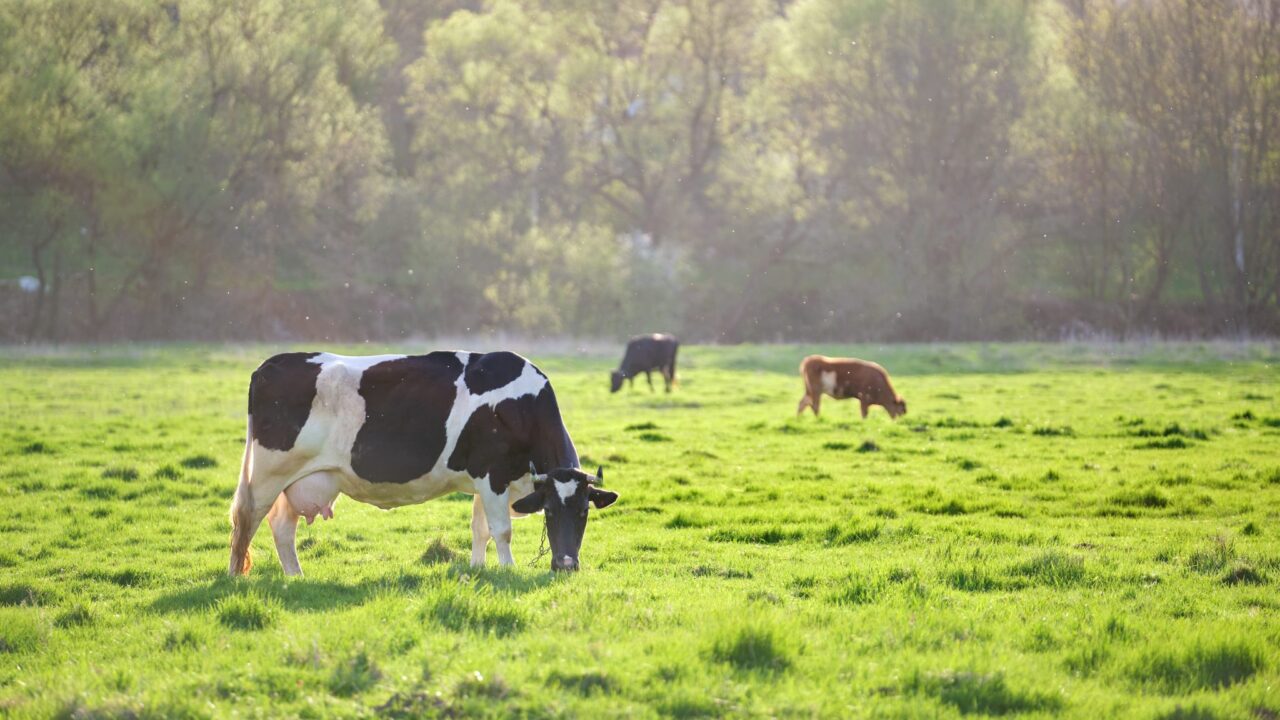Since January 1, 2025, all conventional dairy farmers in Denmark with more than 50 cows are required to reduce methane emissions by adjusting their feed.
In order to achieve this, a farmer must either increase the fat content in their cows’ diet throughout the year or add Bovaer, a methane-reducing additive, to the feed for 80 days a year.
The move is part of the Danish government’s plan to reduce the environmental impact from agriculture.
Farmers
However, some farmers have recently claimed that their cow’s health and milk output had been impacted after using Bovaer.
The Danish Dairy Farmers’ Association told Agriland that the feed additive had been used in “relatively few herds in the spring, without significant changes in the cows’ appetite or welfare in most cases”.
Around 1,400 herds, out of Denmark’s total of about 2,000, are believed to have started administering Bovaer around October 1.
The Danish Dairy Farmers’ Association said it has been in direct contact with 30 to 40 farmers who claim to have had problems in their herds.
The association said these farmers reported sluggish cows; reduced appetite and declining milk yields.
“In some cows the rumen stops functioning, and in rare cases cows have been culled,” the association said.
“Many farmers have, contrary to the rules, reduced the dosage to about half strength, and production then proceeds reasonably,” it added.
Feed additive
The association said it is “fundamentally opposed to administering chemical products to cows”, but has respected the Danish legal requirement on the condition that the cost is compensated and that it does not lead to health or welfare problems for the cows.
“There has been scattered criticism of the requirement to use Bovaer for some time, but only now, when we can clearly see the effects, have politicians, veterinarians, and others begun to react,” the association said.
According to the Danish Dairy Farmers’ Association, “only a few farmers use the addition of fatty acids on a year-round basis”.
The association has not received reports from them of particular problems “apart from the fact that the dosage of 48g of fatty acids per kilogram of dry matter is on the verge of being too much”.
Investigation
The Danish Food and Veterinary Administration (DFVA) said it is aware that some farmers have reported some cases of sick cows after introducing Bovaer into the feed ration, according to the dairy farmers’ organisation.
“We are in close contact with the Danish Agriculture and Food Council, which has now initiated a survey among farmers, advisors, and veterinarians working in dairy farms in order to collect relevant data.
“Hopefully, this will shed some light on the situation,” the DVFA told Agriland.
The DVFA, which is part of the Danish Ministry of Food, Agriculture and Fisheries, has also asked Aarhus University to carry out an investigation of the matter.
“This investigation includes biological samples from relevant dairy farms. As these samples must be analysed and the results evaluated, the scientific report from this investigation will be published later,” it said.
Bovaer
A spokesperson for dsm-firmenich, the company that developed Bovaer, told Agriland, that “animal welfare is our highest priority”.
“We are deeply committed to safeguarding the health and wellbeing of livestock, supporting farm performance, and securing the future of dairy farming, as we have consistently done for decades.
“Currently, around 1,400 Danish farmers are using the Bovaer feed supplement, and we are aware that in recent days, some farmers have raised concerns about cow health.
“We are actively engaging with the relevant organisations to ensure that all these concerns are fully investigated and properly addressed.
“In previously reported cases, Bovaer was not identified as a contributing factor to the health concerns raised,” the spokesperson said.
Farmers experiencing issues are being advised to report them to SEGES Innovation, an independent research and innovation organisation.
“Aarhus University has also reaffirmed that its earlier research conducted under controlled conditions, found no evidence of disease in cows using Bovaer,” the company added.
“These findings align with a large body of evidence from international research and widespread global on-farm adoption, reinforcing Bovaer’s safety and efficacy, over the past 15 years.
“Bovaer is a proven, effective and safe solution that has been successfully used for over three years by thousands of farmers in over 25 countries.
“It is approved for use in 70 countries, including the United States, the European Union, and Switzerland.
“Food safety authorities in these regions have thoroughly reviewed Bovaer and confirmed its safety and effectiveness in reducing methane emissions,” the spokesperson said.

